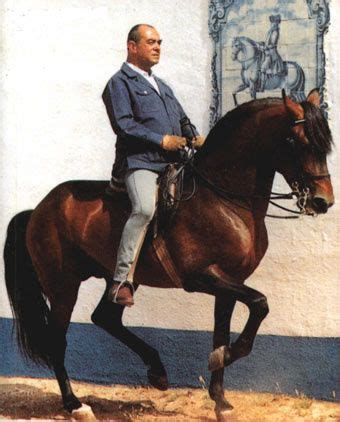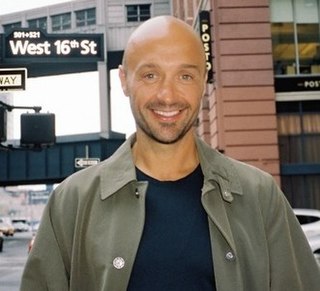A Quote by Buck Brannaman
Simply put; I'm trying to see what I can get done with the horse without him being troubled about doing it.
Related Quotes
I’m not trying to turn you into cowboys, I’m just trying to get you better coordinated, get your horse used to things, get your horse comfortable.
Heck, on the first ride you should be swinging a rope off a horse. You should be doing this not so you can rope a cow, but just to get him (your horse) gentle.
You can’t think of everything in life your horse might encounter that might make him afraid so you’d better prepare em for it in other ways.
Some guys make their careers off one horse; kind of a trick horse, a wonder horse. I'm not knocking that, but for me I'm trying to get better and study. That means taking out new horses. It's a life study. When I've finished a horse, I turn him out and basically stop riding him, except taking him to the occasional branding so I can enjoy him.
Think of the horse as your partner.and it's all one great dance.
That's not to say it's always going to be easy or you won't have to work through issues.
But when a horse is troubled or uncomfortable in our world, rather than show contempt for him, you must demonstrate empathy and work to convince him that you mean him no harm.
You have some things that you'd like him to do 'with you', as opposed to 'for you'- and the best way to do that is as partners.
Theatrical times are different from concert times, to put it simply. Taking a figure like [Mahatma] Gandhi and setting him on a stage requires thinking about what theater is about and what the whole experience is about and what we're trying to communicate in that way, so you get into certain less abstract considerations.
I guess in my house when I was growing up, I was comfortable trying to be funny. And my dad, of course, it bugged him sometimes. He was trying to rest, and I was constantly trying to say something stupid to get a reaction. But I like doing these movies. You can do it in front of the camera and then it's over. I don't have to worry about being in front of too many people.
I have never taken a job or done a job where I felt I needed to leave my conscience at the door. One of the the great things about not being in politics as a career is that I can do this job without thinking about my career. I can think about what we're trying to do, what we're trying to accomplish and what we're trying to leave.
I have never taken a job or done a job where I felt I needed to leave my conscience at the door. One of the great things about not being in politics as a career is that I can do this job without thinking about my career. I can think about what we're trying to do, what we're trying to accomplish and what we're trying to leave.
Horses are consistent and logical. The horse will do what is easiest for him. If you make it easy for him to buck you off, kick you, and run away, that’s just what he’s going to do. And more power to him. But if you make it easy for the horse to be relaxed and calm and accurate — and also have it be a beautiful dance between you and the horse — it won’t be too long before he’ll be hunting for that just as hard as you are. Whatever you make easy for the horse, that’s what he’s going to get good at.





























